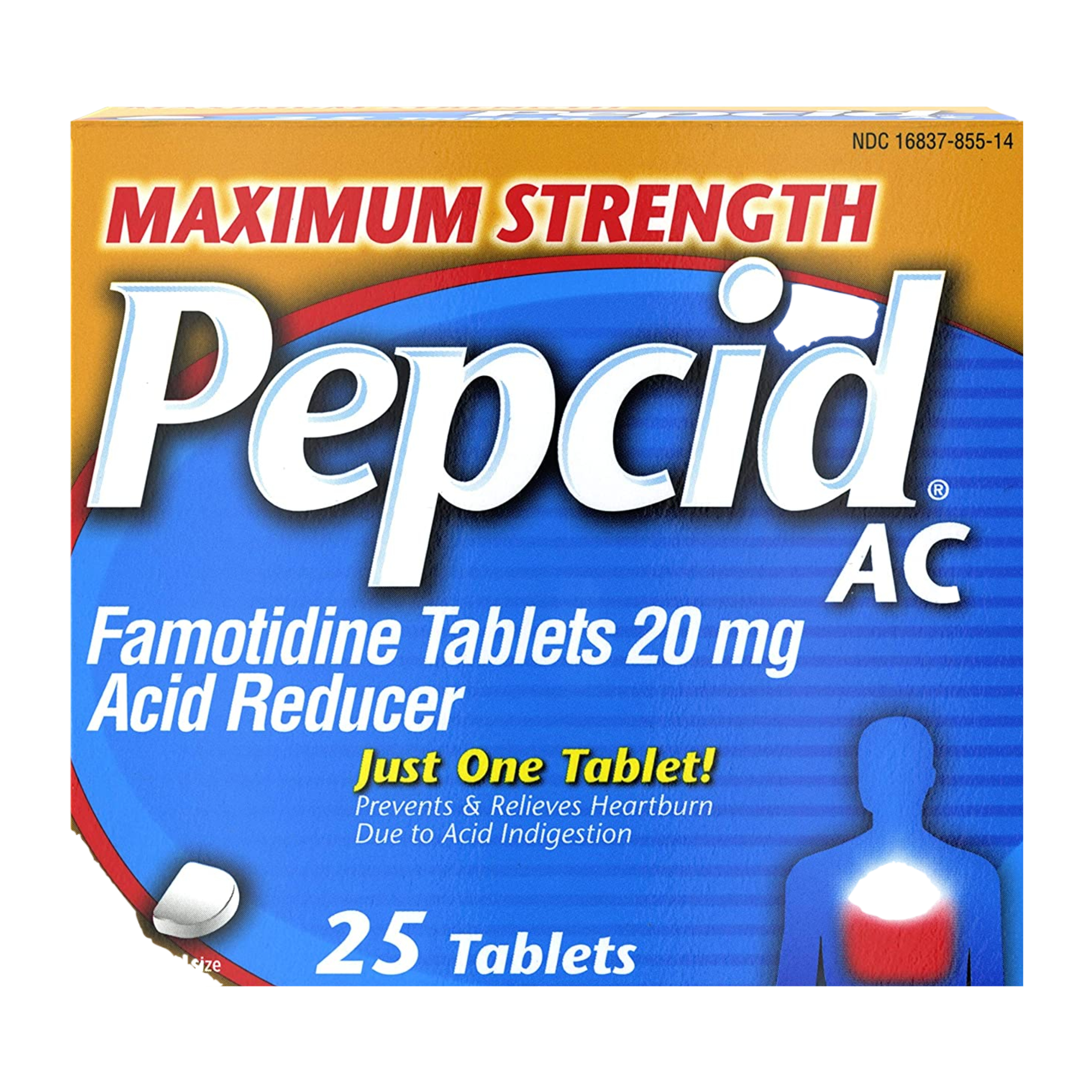Famotidine

Fastest delivery:
Order by 03:00pm
-

Free delivery over £40
Fast, tracked delivery from £2.95. Arrives as quickly as the next working day in discreet packaging.
-

100% UK-based pharmacy
Our team of doctors and prescribers, and our support staff, are all UK-based.
-

Free support and advice
We're on hand to offer free support and advice by email and telephone (Mon - Fri 08:30 - 17:00).
-

We’re rated 4.9 out of 5
based on over 17,000 reviews collected on Google and Reviews.io.
Description
What is Famotidine?
Famotidine is a medication that is used to cure stomach ulcers and gastroesophageal reflux disease. It is a histamine receptor blocker in the class of anti-ulcer drugs that are used to treat conditions such as duodenal and gastric ulcers, dyspepsia, and gastroesophageal reflux disease. It can also be used to prevent stress ulcers.
How Does Famotidine Work?
Histamine is a chemical transmitter that triggers parietal cells to produce gastric acid. The presence of gastric acid can cause unpleasant symptoms in the stomach, with severe cases culminating into more serious complications such as stomach ulcers if left untreated. Famotidine works by reducing the quantity of acid produced by blocking the effects of histamine on the histamine H2 receptors located on the stomach walls and parietal cells.
Warnings
- Notify your doctor if you are pregnant or want to become pregnant.
- If you are sensitive or have had a reaction to other histamine receptor blocking medications you cannot use Famotidine as it might be deadly.
- You cannot use Famotidine if you have advanced or end-stage kidney disease because you might not be able to get rid of this medication from your system.
- Remember to store Famotidine at room temperature and far from reach by children.
Directions
Follow directions with medication and seek guidance of your healthcare provider if you have any quesitons.
- You may take famotidine pills with or without food
- Famotidine oral should be taken by mouth.
- Take this medicine as directed to get the most out of it. To assist you to remember, take it at the same time(s) every day.
- This medication should not be stopped abruptly since it may cause ulcer healing to be delayed.
- Famotidine can be used as part of a comprehensive therapy that includes dietary or lifestyle modifications. Follow all of your doctor's or dietician's instructions carefully.
Ingredients
The active component is Famotidine.
The inactive components are magnesium stearate, sodium starch glycolate, cellulose, microcrystalline, , hypromellose, silica colloidal anhydrous pregelatinized starch, macrogol 4000, lactose monohydrate, talc.
Side Effects
Although not all of these side effects are likely, if any do occur, they might need medical intervention. Some of the symptoms include:
- Hallucinations
- A seizure
- Constipation or diarrhoea
- Muscle pain
- Skin rash
- Pounding heartbeats
Ensure to follow up with your doctor to observe whether the medication is working properly or if you have any concerns.
FAQs
1. How should I take Famotidine?
Take as prescribed, usually once or twice daily. Swallow the tablet whole with water.
2. Can I take Famotidine with food?
Yes, it can be taken with or without food, but it is often recommended before meals or at bedtime.
3. How long does it take to work?
It may start relieving symptoms within an hour, but full benefits can take a few days.
4. Are there any interactions?
Famotidine can interact with certain medications, such as antifungals and certain HIV drugs. Consult your doctor if you are on other prescriptions.
5. Can it be used long-term?
Consult your healthcare provider for long-term use, especially if you have chronic conditions.


